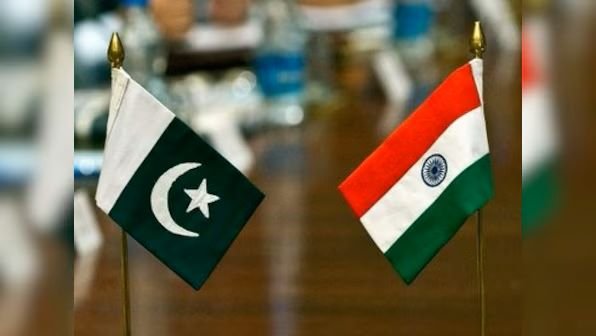Tensions between India and Pakistan have sharply escalated following a deadly assault in Indian-administered Jammu and Kashmir, raising fears of regional instability.
The attack occurred on April 22 in the Baisaran Valley near the tourist town of Pahalgam, claiming the lives of 26 people—mostly male tourists.
Initial claims of responsibility came from The Resistance Front (TRF), a Pakistan-based armed group linked to Lashkar-e-Taiba, a UN-designated terrorist organisation.
In a now-retracted statement, the group said the attack was a reaction to Indian policies allowing citizens from other parts of the country to settle in Kashmir. TRF pulled back its claim four days later, but by then, the damage had already been done.
Indian authorities reported that the attackers used US-NATO-manufactured M4 rifles and entered through rugged mountain trails and dense forests surrounding the tourist hotspot.
India and Pakistan have long disputed the status of Kashmir, which remains one of the world’s most volatile flashpoints. India insists the region is an integral part of its territory, while Pakistani Prime Minister Shehbaz Sharif recently declared, “Kashmir is Pakistan’s jugular vein.”
Diplomatic Retaliation and Border Closures
Following the attack, India responded swiftly by pointing fingers at Islamabad for harbouring militant groups. It accused Pakistan of backing Lashkar-e-Taiba and being directly responsible for the violence in Pahalgam.
A day after the killings, India suspended its participation in the Indus Waters Treaty—a 1960 agreement that governs the sharing of the Indus River system between both nations.
Indian officials also began releasing water from the Uri Dam, a move that could impact Pakistan’s agriculture sector.
India subsequently shut down the Attari-Wagah border crossing, the most significant land route between the two countries. Pakistani nationals in India were ordered to return home by May 1, and special visas under the SAARC Visa Exemption Scheme were cancelled, with recipients given 48 hours to leave.
Military, naval, and air force attaches from Pakistan were asked to leave India within a week. Similarly, India is recalling its military envoys from Islamabad.
The two countries also agreed to reduce diplomatic staff in their respective embassies, slashing personnel from 55 to 30 by the May 1 deadline.
Indian Prime Minister Narendra Modi addressed the nation, said, “Every Indian’s blood was on the boil.”
It would seem that mounting domestic political pressure is pushing both governments toward more aggressive stances.
Pakistan’s Countermoves and Global Reactions
In retaliation, Pakistan has warned that it may suspend the 1972 Simla Agreement—a peace accord signed after the 1971 India-Pakistan war that led to the creation of Bangladesh.
Islamabad expelled Indian military advisers and ordered Indian nationals with special visas to exit the country.
Pakistan also announced the closure of its side of the Wagah border and a full suspension of trade with India. Additionally, it banned the movement of Indian goods through its territory to countries like Afghanistan and prohibited Indian aircraft from using its airspace—a measure that could disrupt regional flight routes.
India, meanwhile, test-fired the INS Surat, a naval surface-to-air missile with a 70km range, in the Arabian Sea. The military display has further raised tensions.
China, Turkey, and Azerbaijan have reportedly pledged support to Pakistan. A Chinese spokesperson said that the country would assist Islamabad in safeguarding its sovereignty.
Reports suggest that both China and Turkey have provided military hardware to Pakistan. At the same time, Iran and Saudi Arabia have called on both sides to exercise restraint and avoid escalation.
As the situation unfolds, observers warn that if global powers start backing either side—such as the U.S. aligning with India and China with Pakistan—the crisis could spiral into a wider and more destructive conflict.
Like 👍, Comment, share this article, and Follow us on our social media handles.







